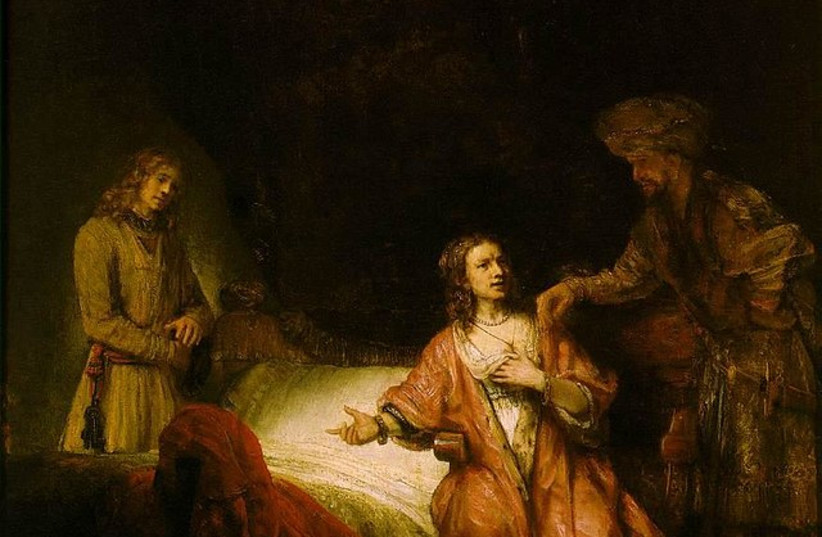He loved Joseph.
No, I am not referring to Jacob, who adored his son Joseph, but to the Prophet Muhammad, who, when asked, “Who is the most honorable amongst the people?” replied: “The most honorable among them is the one who is most Allah fearing.” They said, “O Allah’s Prophet! We do not ask about this.” He said: “Then the most honorable person is Joseph, Allah’s Prophet, the son of Allah’s Prophet, the son of Allah’s Khalil.” This is told in Sahih al-Bukhari, a collection of Hadith [quotes by the Prophet] complied by Imam al-Bukhari, whose work is recognized by the overwhelming majority of the Muslim world to be the most authentic reports of the Sunnah [teachings] of the prophet.
Descending from distinguished ancestors, Abraham, Isaac and Jacob, Joseph is one of the most revered men in Islamic theology. Muslims believe that he was gifted with prophetic visions. As Al-Kisai by Abu al-Hasan Ali ibn Hamzah, one of the foremost writers on the lives of the Qur’anic prophets, states that Joseph was given a staff of light with five branches. On the first branch was written “Abraham, a friend of God,” on the second, “Isaac, pure of God,” on the third, “Ishmael, the sacrifice of God,” on the fourth, “Jacob, Israelite of God,” and on the fifth, “Joseph, righteous of God.” Among the most influential Sunni scholars of the Shafi School Ismail ibn Kathir, in his celebrated commentary, maintains that touched by God, “Joseph was the greatest, the noblest and most exalted” among Jacob’s sons.
In Islam, Joseph is so revered that although the stories of other prophets are mentioned in Suras [various passages], the complete narrative of Yusuf [Joseph] is revealed in Chapter XII, which has 111 verses concerning the Islamic interpretation of Genesis 37-50.
Also in Sufi mysticism, one finds the most profound interpretation of Joseph’s trials, tribulations and triumphs as Jalal ad-Din Muhammad Rumi’s perspective imparts the story with universal spiritual import transcending faith-specific interpretations.

Joseph’s story has spilled over the banks of its original spiritual riverbed and roamed beyond the ages reaching many distant shores. His tale is woven into the rich spiritual, artistic and intellectual tapestry of all three Abrahamic faiths, as it is related in religious texts, miniatures, illuminated manuscripts, paintings [who could not feel the oceans of sorrow that wash over the face of Jacob in Giovanni Andrea de Ferrari’s painting], novels such as Thomas Mann’s Joseph and His Brothers, musical works including Handel’s majestic oratorio “Joseph and his Brethren,” in Richard Strauss’s The Legend of Joseph, in musicals among which we might count Andrew Lloyd Weber’s and Tim Rice’s Joseph and The Amazing Technicolor Dreamcoat, in DreamWorks’ animation film Joseph: King of Dreams, in Iranian Farajullah Salahshur’s film Yousef e Payambar [Joseph the Prophet], and Bernard Lang’s book Joseph in Egypt: A Cultural Icon from Grotius to Goethe.
In Exodus, we are told that Moses fulfilled the pledge of the patriarchs by taking Joseph’s bones with him when he left Egypt. “As for the bones of Joseph, which the people of Israel brought up from Egypt, they buried them at Shechem [Nablus], in the piece of land that Jacob bought from the sons of Hamor the father of Shechem for a hundred pieces of money. It became an inheritance of the descendants of Joseph,” (Joshua 24:32).
Joseph’s bones being buried in the land God swore to Abraham, Isaac and Jacob marks the faithfulness of the eternal. It is interesting to note that in the context of current Israeli-Palestinian territorial disputes, Islam teaches that the remains of Joseph were brought from Egypt to the Promised Land by Moses, thus confirming the bond between the earthly remains of the Patriarch and the Land of Israel sanctified by God.
Given Muhammad’s admiration and affection for Joseph, a devout Muslim would be saddened that the Tomb of Joseph site has been desecrated again during the holy month of Ramadan by Palestinian militants who “knew not Joseph.”
In the Prelude to Joseph and His Brothers, Thomas Mann, titled “Descent to Hell,” writes: “Very deep is the well of the past. Should we not call it bottomless?” He might have added, “So is the well of hatred!” For this is a bottomless well endlessly filled with tears and jealously guarded by burning ghosts consummating their shame.
The writer is a strategic planning analyst located in Montreal.
